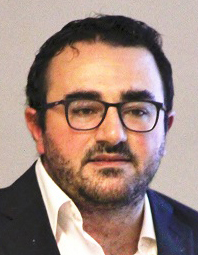
Pasquale Annicchino is Senior Research Associate Cambridge Institute on Religion & International Studies and Visiting Researcher Institute Religious Studies-Fondazione Bruno Kessler
COVID-19 has been a massive socially disruptive fact that has forced all of us to confront unforeseen challenges in our personal and professional lives. During this webinar series we have discussed many of these challenges through the interactions we have fostered with our speakers and participants. Here I will focus on the legal, technological, and epistemic dimensions of the relationship between the pandemic and religious freedom.
Global Human Dignity
Only a few days after the skyrocketing increase of the contagion, Yuval Noah Harari published an article in the Financial Times highlighting the challenge that the diffusion of the pandemic was bringing to the world. I think that the two main challenges to which Hariri pointed remain valid now, a few months after the beginning of this terrible journey.
According to Harari, “In this time of crisis, we face two particularly important choices. The first is between totalitarian surveillance of the state and citizen empowerment. The second is between nationalist isolation and global solidarity.”[1] Let me focus on the second first. What we have learned in the series is that COVID-19 has brought many states to the same dilemma: how to balance different civil rights? How to cope with a difficult epidemiological situation without compromising fundamental rights and freedoms?
This balance has not been the same around the world. I would argue that it does not need to be the same, as if the policy options available would be the necessary consequence of cartesian logic. Different societies and different polities respond to different value choices and options. However, I think that we have seen an abuse of this necessary relativism. I think we should continue a global conversation for a minimum dignity threshold for individual human rights that states should not be allowed to violate in the name of national security or a collectivistic understanding of rights. Such faulty theoretical constructs are generally used to justify serial violations of rights in the interest of majoritarian opinions. Global Human Dignity should therefore remain a guiding light.
Pandemic Law
The first choice that Harari underlined was between a “totalitarian surveillance state and citizen empowerment.” This choice highlights one of the must fundamental paradigmatic shifts brought to the protection of civil rights, including religious freedom, that we have seen in recent times. The capability that public and private organizations have to collect personal data and profile individual behaviors is, in many parts of the world, getting out of control.
While many responses to COVID-19 have been taking place within the framework of what I would call “The Law of the Pandemic” (more or less ordinary legal tools stretched to reach certain goals), in the future many states will have access to an increased range of technological tools that challenge the traditional relationship between public authorities and individuals and private institutions. We need to ask whether the private institutions collecting vaste amounts of data on individuals and then sharing them with governments are really private companies or functionally a branch of the public administration. We still live in a world were these boundaries are not clear and gray areas continue to increase: it’s the Pandemic Law.
A New Epistemology for Law and Religion?
It is exactly because we are moving towards a new paradigm that a mainstream Church and State approach, which has guided many of us on religious freedom issues, needs to be challenged and updated. This is even more true when religious groups themselves embrace technology and innovation as we have seen during the pandemic[2].
As Andrew Sarazin, President of the Templeton World Charity Foundation, has recently argued: ‘The printing press was a highly disruptive technology when it was invented by Johan Gutenberg in 1440, and it allowed for the mass distribution of the vernacular Bible that fueled the Protestant Reformation. We may be approaching a similar moment now when the pressure of the coronavirus pandemic combines with the power of digital technologies and the Internet to radically reshape religious life.’[3] It is therefore time for scholars to engage in a very much needed reflection on the categories that we use to analyze the role of religion in society and its relationships with power, both public or private.
Looking Forward
I will build on the experience of the webinar series for a book on which I am currently working tentatively titled Global Law and Religion: The Rise of the Civilizational State. Many of the reflections collected during the series will surely influence my writing. I have also benefitted from the series for the two courses on Global Law and Religion that I will be teaching in 2020-21. Most of all, I’m hoping for a light at the end of the tunnel and real global solidarity.
[1] Yuval Noah Harari, The World after Coronavirus, Financial Times, 20 March 2020.
[2] Many researches pursued at the Centre for Religious Studies at FBK follow this approach.
[3] Andrew Serazin, Is it Finally Time for Religion to Embrace Technology?, Medium, 7 July 2020.
